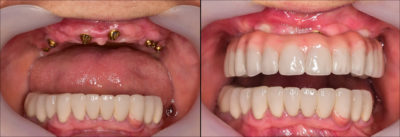
About The Caring Dentists of Macleod Trail Dental
Our team of dentists has vast experience and is committed to finding the best teeth replacement alternative for you. They will be happy to answer your dental questions and explain in detail all the procedures so that you have no doubts about the future of your smile. If you are looking for a new dentist in SW Calgary that you can trust, Macleod Trail Dental is here to help!
ABOUT US

